Grass Weed and Vegetation Herbicide Lawsuit: Were You or A Loved One Diagnosed With Non-Hodgkins Lymphoma
In the realm of legal battles and public health concerns, the correlation between the usage of grass, weed, and vegetation herbicides and the diagnosis of Non-Hodgkin's Lymphoma has sparked significant debate. As lawsuits mount against major manufacturers like Monsanto, alleging that their glyphosate-containing products are carcinogenic, the stakes for both affected individuals and the industry are incredibly high. This complex issue intertwines scientific research with legal arguments, raising critical questions about consumer safety, corporate responsibility, and the adequacy of regulatory oversight. For those navigating the aftermath of a diagnosis or considering legal action, understanding the evolving landscape of these lawsuits is crucial. What remains to be seen is how these legal challenges will unfold and what implications they will have for future regulatory policies and practices.
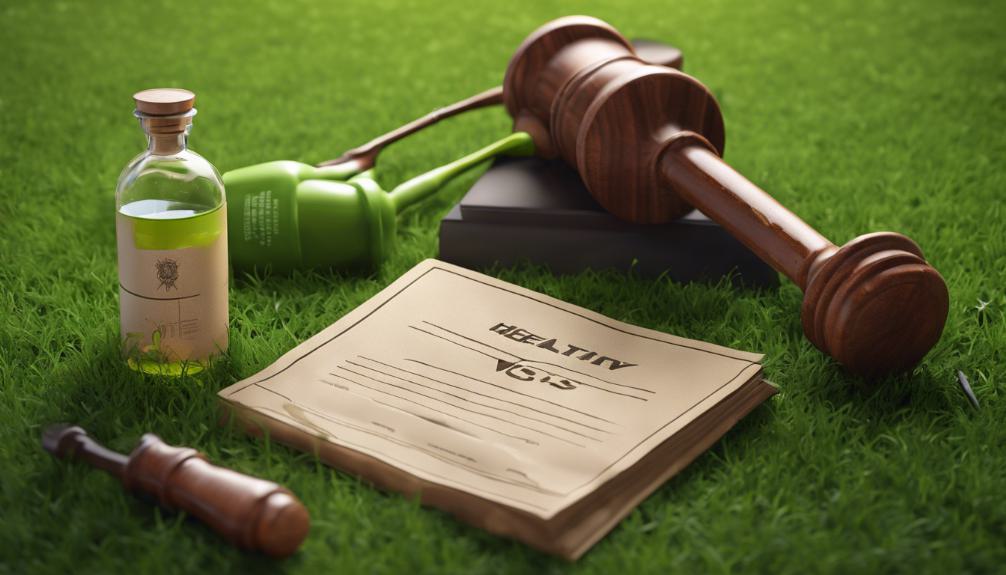
Herbicide Exposure Overview
Herbicide exposure, particularly from glyphosate-containing products, has become a significant concern due to its potential link to Non-Hodgkin's Lymphoma and subsequent legal actions. Investigations spearheaded by product liability attorneys have illuminated a troubling connection between the use of these herbicides, notably those developed by Monsanto among other entities, and the development of this type of blood cancer. Victims who have been diagnosed with Non-Hodgkin's Lymphoma following exposure to glyphosate are now seeking compensation through the legal system. These lawsuits underscore the growing scrutiny over the safety of widely used herbicides and the accountability of their manufacturers. Eligible products for these claims are not limited to, but prominently include, glyphosate-based herbicides, highlighting the widespread concern and the legal recourse available to those affected.
Non-Hodgkins Lymphoma Explained

Non-Hodgkin's Lymphoma, a complex form of cancer, originates in the body's lymphatic system and impacts the white blood cells known as lymphocytes. This malignancy encompasses a diverse group of cancers that differ in their severity, progression, and how they respond to treatment. The lymphatic system, crucial for the immune response, circulates lymphocytes that help fight infections. When lymphocytes undergo a malignant change, they multiply uncontrollably, leading to Non-Hodgkin's Lymphoma. Symptoms can vary but often include swollen lymph nodes, fatigue, and unintended weight loss. Diagnosis involves a combination of physical examinations, blood tests, imaging studies, and biopsy of affected lymph nodes. Treatment options range from chemotherapy and radiation therapy to targeted drug therapies and stem cell transplantation, depending on the specific type and stage of the lymphoma.
Linking Herbicides to Cancer

Understanding the role of environmental factors in the development of cancer, recent studies have focused on the potential link between the use of certain herbicides and the incidence of various types of cancers, including Non-Hodgkin's Lymphoma. This emerging body of research suggests that exposure to specific chemicals found in some herbicides might increase the risk of developing this and potentially other cancers. Legal investigations and lawsuits have brought attention to the experiences of individuals diagnosed with cancer following herbicide exposure, highlighting the need for a deeper understanding of these potential connections. As science continues to explore these associations, the legal realm is concurrently examining the implications for manufacturers and users, aiming to address the concerns of affected individuals and ensure accountability where necessary.
Glyphosate and Its Effects

Glyphosate, a widely used agricultural chemical, has come under scrutiny for its potential health impacts, particularly its association with an increased risk of developing Non-Hodgkin's Lymphoma. This chemical is the active ingredient in many herbicides, including those used in commercial farming and residential gardening. Research and debates have intensified over the years, focusing on glyphosate's carcinogenic potential. Regulatory bodies and scientific communities worldwide have conducted various studies to assess the safety of glyphosate use. Some of these studies have suggested a possible link between glyphosate exposure and a heightened risk of cancer, leading to public concern and legal battles. Individuals exposed to glyphosate and diagnosed with Non-Hodgkin's Lymphoma have sought legal recourse, alleging insufficient warnings about the herbicide's health risks.
Monsanto's Role in Herbicide Production

Given the rising concerns over glyphosate's health risks, Monsanto, a leading producer of herbicides, has been at the forefront of legal and public scrutiny for its role in manufacturing and marketing these controversial products. The company, renowned for its agricultural biotechnology, has historically defended the safety of its products, including the widely used herbicide Roundup, which contains glyphosate. This defense comes amidst a growing body of research and public outcry over potential health hazards, including a possible link to Non-Hodgkins Lymphoma. As a pioneer in the development of genetically modified organisms (GMOs) designed to withstand glyphosate-based herbicides, Monsanto's influence on both the agricultural sector and the herbicide market is significant, further magnifying the scrutiny over its practices and product safety assurances.
Legal Grounds for Herbicide Lawsuits
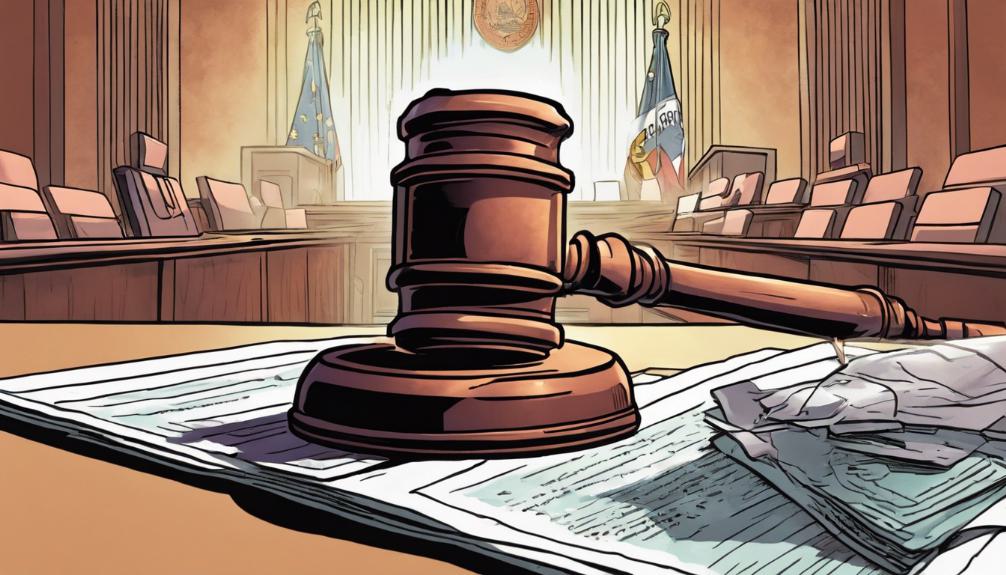
The foundation of herbicide lawsuits frequently centers on allegations that prolonged exposure to certain chemicals, specifically glyphosate, leads to severe health issues such as Non-Hodgkins Lymphoma. Plaintiffs argue that manufacturers, including but not limited to Monsanto, failed to adequately warn users about the potential risks associated with their products. Legal claims often assert that the companies knew or should have known about the carcinogenic properties of glyphosate and other chemicals used in their herbicides. Additionally, lawsuits may cite violations of consumer protection laws, alleging that deceptive practices were employed to market these herbicides as safe. The legal grounds for these lawsuits hinge on proving negligence, failure to warn, product liability, and in some cases, fraud, which forms a comprehensive basis for seeking compensation for the damages incurred by individuals diagnosed with related health conditions.
Eligibility for Filing a Claim
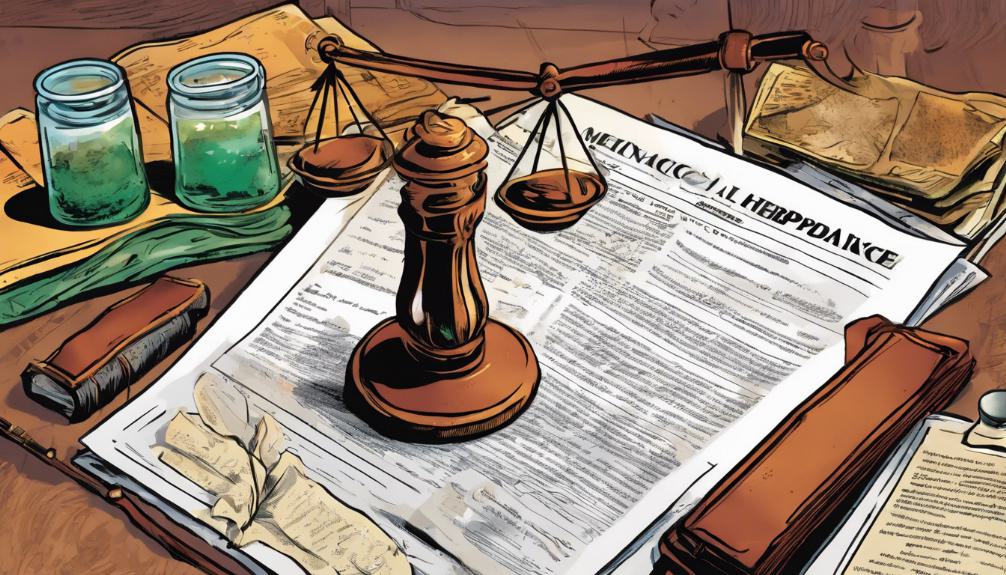
Individuals who have been diagnosed with Non-Hodgkins Lymphoma following exposure to herbicides may be eligible to file a legal claim. Eligibility often hinges on the direct link between the diagnosis and herbicide exposure, specifically with products containing glyphosate or other harmful chemicals. Those who suspect their condition is a result of using or being in proximity to such herbicides, especially products distributed by entities like Monsanto, should consider legal consultation. It's imperative that potential claimants have a documented diagnosis of Non-Hodgkins Lymphoma, along with evidence of exposure to the herbicide in question. Legal experts typically offer a free case review to ascertain the viability of the claim and guide individuals through the process of filing a lawsuit.
Types of Compensation Available

Several forms of compensation are available to those diagnosed with Non-Hodgkins Lymphoma following herbicide exposure, including monetary damages for medical expenses, lost wages, and pain and suffering. Additionally, victims may be eligible for compensation for ongoing care costs, such as rehabilitation or home care services. In cases where the exposure leads to a fatal outcome, families of the deceased may seek damages for wrongful death, which can include funeral expenses and loss of consortium or companionship. Punitive damages may also be pursued if the defendant's actions are found to be particularly egregious or reckless. Each case is unique, and the specific types of compensation available will depend on the circumstances surrounding the exposure and diagnosis.
The Process of Filing a Lawsuit

Understanding the types of compensation available is crucial, yet initiating a lawsuit requires knowledge of the specific procedural steps involved. Firstly, potential plaintiffs should seek a free case review from a specialized attorney to assess the viability of their claim. This involves detailing the extent of exposure to the herbicide and the subsequent diagnosis of Non-Hodgkins Lymphoma. Upon confirming eligibility, the legal team gathers medical records, employment history, and exposure evidence to build a compelling case. The lawsuit officially begins with the filing of a legal complaint against the manufacturer, which outlines the plaintiff's arguments and requested damages. This initiates a legal process that may involve pre-trial discovery, settlement negotiations, and possibly a trial to argue the case before a judge or jury.
Other Notable Herbicide Cases
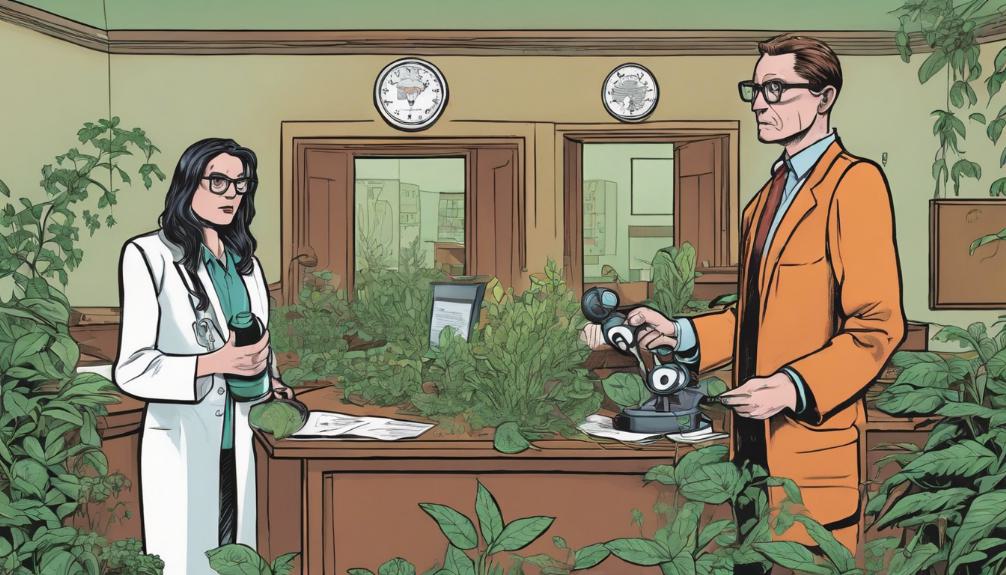
Amid the legal landscape, numerous herbicide-related cases have emerged, highlighting the broader implications of chemical exposure on public health. Beyond Non-Hodgkin's Lymphoma, lawsuits have targeted a range of health issues linked to various herbicides and pesticides. Companies behind these products, including major agricultural and chemical manufacturers, have faced allegations of negligence and failure to warn users about potential risks. These cases have not only involved individual plaintiffs but also class actions, reflecting widespread concerns over safety standards and regulatory oversight. The outcomes of these legal battles have often led to significant financial settlements or verdicts, underscoring the serious consequences of exposure to harmful chemicals and the importance of holding corporations accountable for public health impacts.
Choosing the Right Legal Representation

Selecting the appropriate legal representation is crucial for individuals pursuing compensation in injury-related lawsuits, including those linked to herbicide exposure and Non-Hodgkin's Lymphoma. When choosing a law firm or attorney, it is important to consider their expertise and track record in handling similar cases. Look for legal professionals who have successfully litigated against large corporations and have a deep understanding of the specific nuances related to herbicide litigation. Additionally, ensure they are compassionate and communicative, offering clear guidance throughout the legal process. The right attorney should provide a comprehensive evaluation of your case, helping you understand your legal rights and the potential for compensation. Opting for specialized legal representation can significantly impact the outcome of your case, aiming for the justice and compensation you deserve.
Preparing for Your Case Review

Preparing for your case review is a critical first step in advancing your legal claim for compensation related to herbicide exposure and Non-Hodgkin's Lymphoma. To ensure a comprehensive review, gather all relevant medical records, employment history, and any documentation of herbicide use or exposure. This includes medical diagnoses, treatments, and any correspondence with healthcare providers about your condition. Additionally, compile evidence of your exposure to the herbicide, such as purchase receipts, photographs of the products used, or witness statements confirming your use or exposure. Be ready to discuss the timeline of your exposure and the onset of symptoms. Providing a detailed and organized dossier to your attorney will streamline the review process, making it easier to assess the strength of your case.
Understanding Your Rights
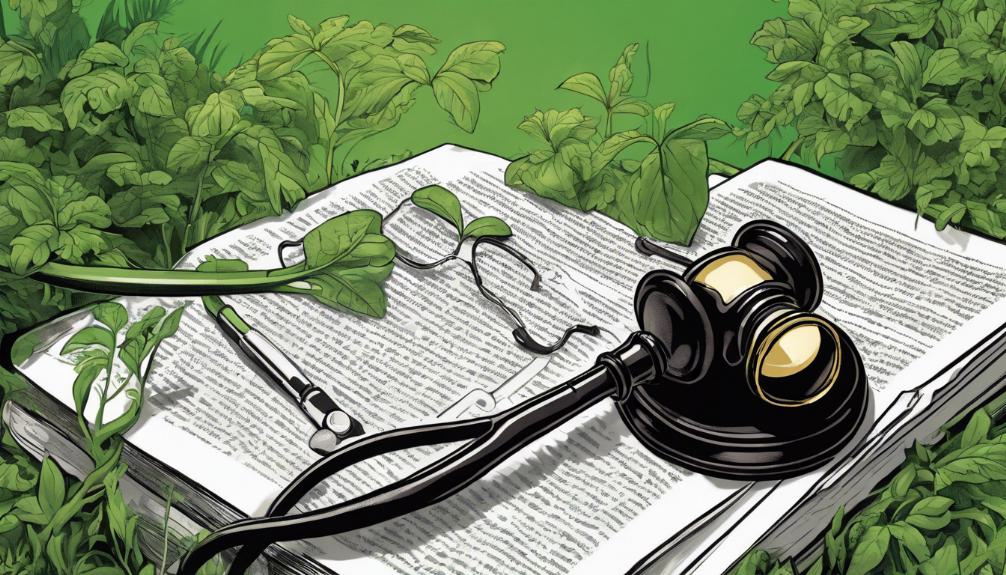
It is crucial for individuals who have been exposed to herbicides and diagnosed with Non-Hodgkin's Lymphoma to be fully aware of their legal rights and options for seeking compensation. Laws governing product liability assert that manufacturers and distributors can be held accountable if their products cause harm. This includes herbicides containing glyphosate and other chemicals linked to significant health risks. Victims of such exposure may be entitled to compensation for medical expenses, loss of income, and pain and suffering. Understanding these rights is the first step towards potentially recovering damages. Legal precedents and product liability laws provide a framework for these claims, emphasizing the importance of informed legal counsel in navigating these complex legal waters.
Next Steps After Diagnosis

Upon receiving a diagnosis of Non-Hodgkin's Lymphoma potentially linked to herbicide exposure, the initial step is to seek comprehensive medical evaluation and treatment options. It's paramount to collaborate with healthcare professionals who specialize in oncology to formulate a tailored treatment plan. Following medical guidance, it's advisable to consider legal recourse. This involves contacting a law firm experienced in handling herbicide exposure lawsuits. Many firms offer a free case review, providing an opportunity to explore the possibility of compensation without financial obligation. Documentation of herbicide exposure, medical records, and any related evidence is crucial for supporting your claim. Engaging with a legal team early ensures that you navigate the complexities of the legal system with informed support, maximizing the potential for a favorable outcome in seeking justice and compensation.
Frequently Asked Questions
Can Lifestyle Factors or Other Environmental Exposures Affect the Outcome of My Herbicide Exposure Lawsuit?**
In evaluating the merits of a herbicide exposure lawsuit, particularly those alleging a link to Non-Hodgkin's Lymphoma, both lifestyle factors and other environmental exposures may indeed influence the case outcome. Legal assessments typically consider the totality of potential contributing factors to accurately establish causation. Therefore, it is essential for claimants to disclose all relevant information during the legal review process to ensure a comprehensive evaluation of their claim.
This Question Delves Into How External Factors, Not Directly Related to Herbicide Exposure, Might Influence the Legal Evaluation of a Case. It Explores the Intersection of Personal Habits or Environmental Conditions and Their Potential Impact on the Lawsuit's Outcome.
The examination of how lifestyle factors and other environmental exposures might affect the outcome of lawsuits related to health issues is of significant legal and medical interest. These external factors could potentially influence the evaluation of causation and liability in cases, particularly when establishing a direct link between product use and health outcomes. Understanding the interplay between personal habits or environments and legal assessments is crucial for accurately determining responsibility and compensation in such cases.
What Are the Long-Term Health Monitoring Protocols for Individuals Exposed to Herbicides but Not yet Diagnosed With Non-Hodgkins Lymphoma?**
For individuals exposed to herbicides without a current diagnosis of Non-Hodgkin's Lymphoma, long-term health monitoring protocols typically include regular medical check-ups, blood tests to detect early markers of lymphoma, and consistent evaluations of symptoms that could indicate the onset of the condition. It is advised to maintain a detailed health diary and report any new or worsening symptoms to a healthcare provider promptly. These measures aim to facilitate early detection and intervention.
This Question Seeks Information on the Recommended Medical Follow-Up and Health Surveillance for Those Who Have Been Exposed to Herbicides but Have Not Developed Non-Hodgkins Lymphoma or Other Related Conditions. It Addresses the Proactive Steps for Early Detection and Management of Potential Health Issues Arising From Exposure.
For individuals exposed to herbicides without developing Non-Hodgkin's Lymphoma or similar conditions, recommended medical follow-up includes regular health screenings and consultations with healthcare professionals. These proactive measures aim for early detection and management of potential health issues linked to herbicide exposure. It is advisable to undergo comprehensive blood tests, lymphatic system evaluations, and frequent medical check-ups to monitor for symptoms or changes indicating health complications related to exposure.
How Have Historical Herbicide Exposure Cases Influenced Current Legal Strategies and Compensation Claims?**
Historical herbicide exposure cases have significantly shaped current legal strategies and compensation claims. Precedent-setting lawsuits have established a framework for evaluating evidence of harm and potential links between herbicide exposure and health conditions like Non-Hodgkin's Lymphoma. These cases have also influenced the types of damages that can be sought, including medical expenses, lost wages, and pain and suffering, enhancing the legal pathways for affected individuals to seek and secure compensation.

This post has been generated by AI and was not reviewed by editors. This is Not legal advice. Please consult with an attorney.




